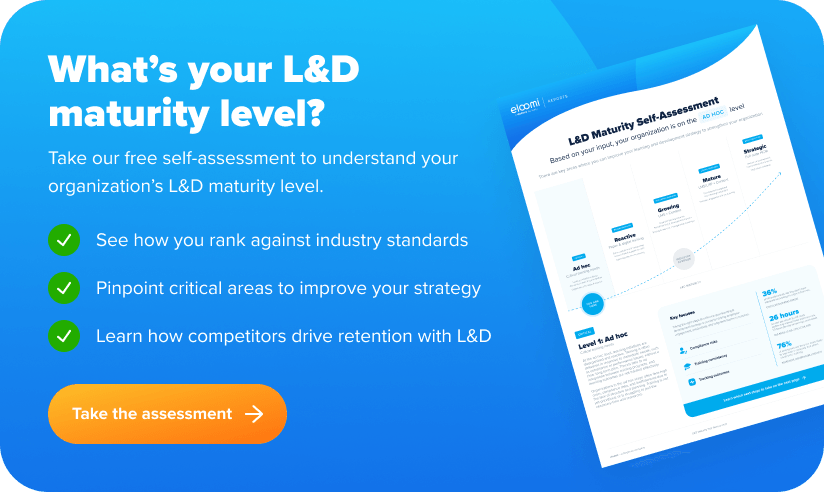What are some examples of soft skills?
When we write resumés or cover letters, we should always mention the soft skills we’ve developed in order to showcase our capabilities and talents at work. Adding soft skills to our list of competencies helps us better describe how we work in a team and how we can change outcomes in certain situations. However, in order to add these to our resumés, we must first understand what a soft skill is and learn about some examples of soft skills.
Soft skill example #1
Let me give you a familiar example of a soft skill. One of my best soft skills to develop is empathy, which supports me greatly in case of conflicts or misunderstandings in my personal and professional life. Imagine that your colleague is upset with you because you ignored his comments for an important presentation. In this example, how would you react?
If you can put yourself in your peers’ shoes, you can solve a team’s potential problem more quickly and better. It’s simple if you have developed soft skills and know when and how to use the soft skills you’re strongest in.
Soft skill example #2
Another soft skill example? A great web developer knows all the secrets and functionalities of their favourite programs, but other colleagues may need guidance to fix issues when the system presents a problem.
The communication style will deeply affect the process. How would you react?
Being able to communicate rapidly and clearly is a fundamental soft skill and, I am sure you agree with me, one of the most needed.
In other words, soft skills enable you to work in harmony and productively with all the rest of your co-workers. Soft skills like those detailed in these examples also define our attitude and motivation at work.

More examples of soft skills
When it comes to soft skills in the workplace, we can never get enough! That’s why you shouldn’t stop learning, promoting, or improving those skills. They are helpful in different situations and not just work-related.
So, if you were wondering about it, I made a quick list of more soft skill examples that you probably would like to learn and develop.
- Assertiveness
- Storytelling
- Positive work ethic
- Problem-solving
- Safety-conscious
- Stress management
- Technology savvy
- Resilience
- Intercultural competence
- Diversity awareness
- Team working
- Mentoring
- Conflict management
- Decision making
- Leadership
- Public speaking
Soft skills vs. hard skills
I am probably not the only one doubting the differences between hard skills and soft skills. Sometimes, it can be confusing and difficult to distinguish between two categories that are so interconnected.
Soft skills are the result of our social attitude, our experiences, and our personality traits. They are closer to our emotional universe and our instincts. That’s why, for instance, we don’t often find soft skills in AI.
These abilities are also crucial to support our negotiating skills and create a collaborative relationship with our colleagues. They complement the hard skills that are essential to do our job.
In this article, you will find the best soft skills and other essential skills for remote working.
But first, let’s take a deep dive and see how we can learn and improve them!

Soft skills: unlocking talent since the beginning of time
I like to think of soft skills as something magical and very precious. That’s what guides us in making decisions, communicating effectively, and actively listening to each other for feedback and new ideas.
Employers who fail to see the value of soft skills can lose the best candidates without even realizing it. But it‘s never too late to change your mind, right?
So, why are soft skills important? I can start by saying that, for some leaders, soft skills can be more critical than hard ones. Would you agree?
Soft skills unleash potential abilities and sustain the entire work effort.
They can make all the difference. Let‘s look at a work–related situation. When project deadlines are inexorably approaching, those with the right soft skills, such as stress management, will likely achieve better results in time.

The best soft skills to develop
You have worked hard to acquire all the technical knowledge and skills you have today, and I have done so as well.
Learning new things while we are busy with our careers needs to be done faster and smarter. For this reason, you should choose the best soft skills to improve your abilities and support your current job.
Not sure where to start? Don’t worry; I’ve gathered the ultimate list of examples of soft skills for you!
- Communication – As my colleague often says, ‘communication is key’ and I couldn’t agree more with him. Yes, this is the number one example of a soft skill worth developing. Once you possess effective communication skills, you have one of the greatest qualities. Remember, this soft skill relates to both verbal and written communication.
- Critical Thinking – This soft skill is one of the most popular for all students of different ages and backgrounds, but is difficult to fully develop and practice at work. Among all the soft skills, critical thinking comes from curiosity. Each time we get a piece of information, it’s good to investigate further and explore the purposes and motivations to make an exact evaluation.
- Emotional Intelligence – If you ask HR about the essential soft skills in a workplace today, being emotionally intelligent will be the first answer. I know, it sounds like a complex skill to learn, but it can help you in various situations. It helps you understand and master your own emotions and those of those around you.
- Adaptability – Do you have a colleague who is always available to assist and support you during unexpected deadlines or problems? This colleague can adapt and be flexible during changes and special needs. Maybe with calmness too. Adaptability is a precious, soft skill that everyone should learn at some point in life.
- Creativity – Creativity is appearing everywhere, and it is for good. It’s a soft skill to learn, but it can also be a performance-related goal to achieve. In any case, having an open mind to find new ideas and unconventional solutions is a fundamental soft skill. Problem-solving requires a creative attitude.

Be the best colleague of the year
I would love to be recognised as the best co-worker in my team or even my company. How about you?
To obtain such a title, you require something beyond exceptional performance. Without a doubt, setting your expectations and goals with your boss will help to make progress.
But what about the rest of your potential and uniqueness? How to develop soft skills at work?
First of all, skills training can be part of your career development if your company has an appropriate employee training LMS to provide you with professional online learning. But keep in mind you also need to practice those you already have in order to improve your skill set.
I have good advice for you; once you’ve established your essential skills, never stop exploring and trying out new ones.

How to develop & improve your soft skills
These are my a, b, c tips for you to start practicing your soft skills:
A) Focus on one soft skill at a time and start researching it
B) Identify one person who has an inspiring soft skill to learn
C) set weekly/monthly objectives and seek feedback from your peers
By following these easy steps, you can improve soft skills without pondering too long or missing concrete actions.

(Working from) home sweet home
Let’s agree on something. Soft skills in the workplace are important, but they become crucial for remote employees.
Sitting in our home office all day, reading emails and turning on the camera for daily meetings seems more comfortable than managing specific office circumstances.
But we know that’s not really true.
Soft skills are mostly the ones that develop better focus, motivation, self-monitoring, and effective written communication. The ones remote workers need most.
For example, if you are not clear in your written communication, you may end up in tedious misunderstandings and extra meetings.
Being aware of recent cybersecurity issues is also incredibly important; nobody wants to lose important data while working from home.
Another pivotal soft skill for remote employees is adaptability, and there is no need to explain why I added this one. These days, rapid changes have become our everyday bread.
Read this before improving your soft skills!
Now you’ve got all the tips and the list of the most important soft skills at work, but we know that it‘s difficult to measure and value these competencies. Due to their nature, they seem to be less quantifiable.
Soft skills also tend to be more versatile and so hard to categorize. For example, leadership skills don’t belong only to leaders; it‘s a soft skill that all employees can benefit from.
When you decide to hire people with soft skills and help them improve, you should focus on re–skilling opportunities and performance management.
Soft skills are in high demand, and companies‘ growth depends on those who can use them effectively. Young talents will be much more interested in joining an organization that values soft skills as they contribute to work motivation and career development.
They also enhance employee retention and strengthen collaboration within the same team or with external stakeholders to deliver exceptional results faster and smarter.







